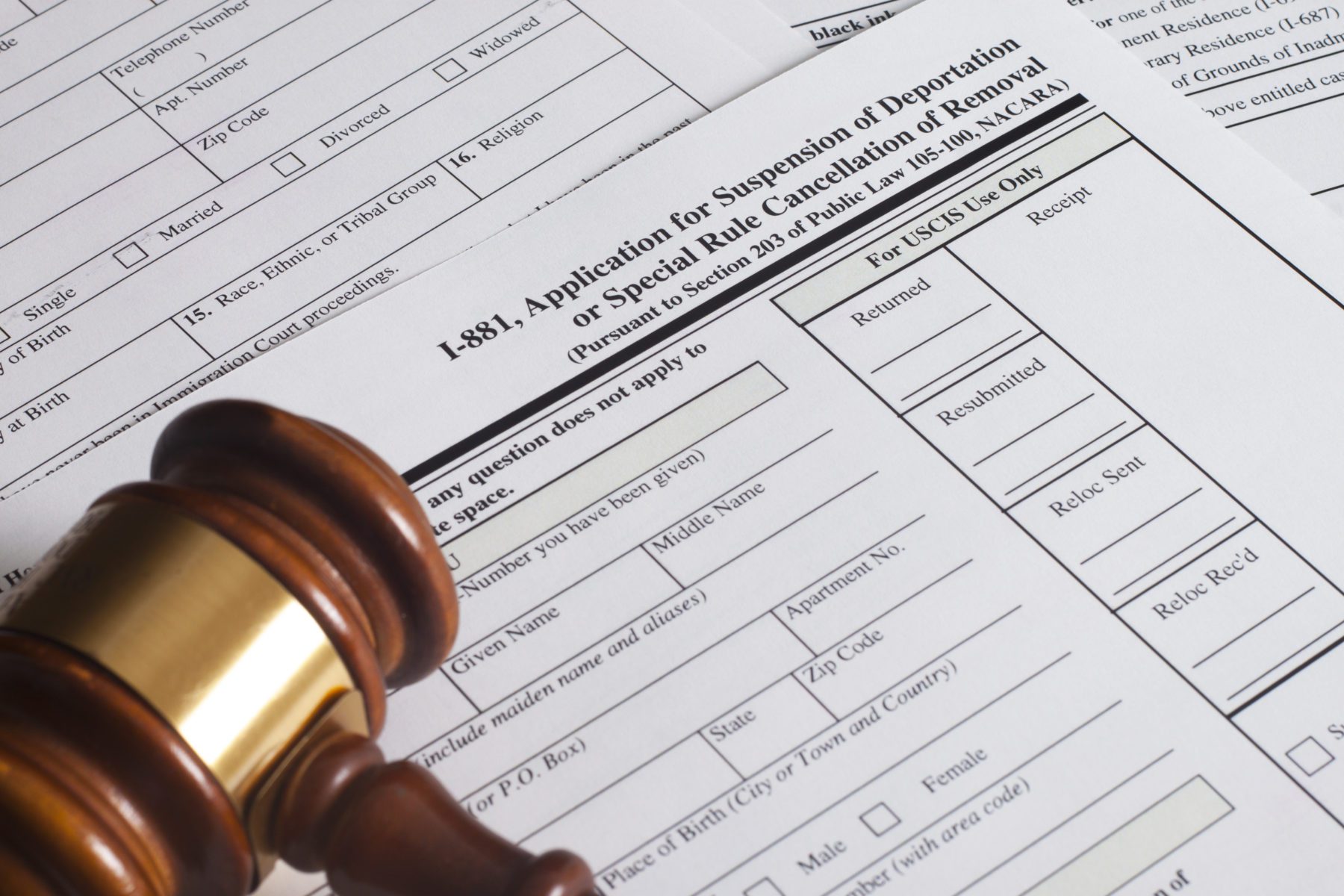BIA Issues Decision Making it More Difficult for People to Prove Necessary Hardship to Win 10-year Cancellation of Removal
READ FROM US
Immigration News & Events
We often receive calls from individuals seeking to understand if they are eligible for a special form of immigration relief called Ten-year cancellation of removal. Ten-year Cancellation of Removal is a form of immigration relief available to someone who is undocumented and meets certain eligibility requirements including having accrued 10 years’ continuous physical presence in the United States. In addition to the 10-years’ physical presence requirement, the individual must also show that they have not been convicted of certain crimes, and his or her removal would result in exceptional and extremely unusual hardship to a qualifying U.S. citizen or lawful permanent resident parent, spouse, or child (under 21 years of age).[1] He or she must also demonstrate that they are a person of good moral character whose case merits a positive exercise of discretion.[2]
While every case is different, generally the most difficult part of 10-year cancellation of removal cases is proving the requisite level of hardship to the qualifying relative. Exceptional and extremely unusual hardship is a term of art that has been interpreted by the BIA in a series of cases over the years.[3] This is a very high burden for the foreign national to prove. Indeed, Ten-year cancellation of removal is a rare form of relief. Through these cases, the BIA has clarified that the hardship showing requires more than the typical consequences of deportation and family separation though the hardship need not rise to unconscionable levels.[4]
Among the many relevant factors the court will consider, a qualifying relative’s serious medical condition and the hardship stemming from the respondent’s removal is an important one. This hardship can include lack of available treatment in the country of removal (in situations where the qualifying relative would depart the U.S. with the respondent) as well as the qualifying relative’s hardship in receiving medical care in the U.S. (in situations where the qualifying relative would remain in the U.S. if the respondent were to be deported).
Recently, the BIA issued a decision in Matter of J-J-G, 27 I&N Dec. 808 (2020), upholding the immigration judge’s denial of cancellation of removal to a citizen of Guatemala whose qualifying relatives included his 5 U.S. citizen children ranging in ages from 2 months to 12 years, and his lawful permanent resident mother.[5] The Respondent provided testimony and some evidence that one of his children was diagnosed with hypothyroidism and that two other children had some mental health disturbances such as aggressive behavior, depression, anxiety, and ADHD.[6] Despite this, the Immigration Judge found that the Respondent had not met his burden in proving the hardship to his children if he were sent back to Guatemala.[7]
According to the Immigration Judge, and as affirmed by the BIA, the evidence provided at the hearing was insufficient to establish that the children and LPR mother had serious medical conditions, and even if they were serious, there was conflicting evidence about the cost of treatment in Guatemala for hypothyroidism, there was no evidence that the LPR mother’s treatment for hypertension would be disrupted if her son returned to Guatemala.[8] The BIA also found that there was no evidence that the child who had suffered from anxiety and ADHD would not fare well by joining his father in Guatemala.[9]
While Matter of J-J-G did not drastically change the interpretation of exceptional and extremely unusual hardship, it has clarified that evidence in support of a serious medical condition and the hardship that would follow in receiving care must be convincing. It is not sufficient to assert that a qualifying relative has a medical condition. Rather the medical condition must be serious, and respondents must connect the hardship their relative would experience in receiving treatment for that serious medical condition if the foreign national is removed.
[1] INA § 240A(b)(1); See Matter of Monreal, 23 I&N, Dec. 56 (BIA 2001).
[2] Id.
[3] Matter of Monreal, 23 I&N Dec. 56 (BIA 2001); Matter of Recinas, 23 I&N Dec. 467, 470 (BIA 2002); Matter of Andazola-Rivas, 23 I&N Dec. 319 (BIA 2002).
[4] “[T]he hardship standard is not so restrictive that only a handful of applicants, such as those who have a qualifying relative with a serious medical condition will qualify of for relief.” Matter of Recinas, 23 I&N Dec. 467, 470 (BIA 2002);
[5]Matter of J-J-G, 27 I&N Dec. 808 (2020)
[6] Id.
[7] Id.
[8] Id.
[9] Id.
Yesterday, President Trump tweeted that he is temporarily suspending immigration to the United States. We still do not have the actual Executive Order and do not know the scope of…
21Apr
Because the CARES Act includes many different components, there are various answers to this question. First and perhaps most important to many families is whether they qualify for the recovery…
23Apr
PERSONAL TOUCH AND SUPERIOR CUSTOMER SERVICE
Recognized Leaders In
Immigration Law
Joseph & Hall P.C. is a full-service immigration law firm. We pride ourselves on being nationwide experts in all areas of immigration law, including the practice areas listed below. Our attorneys frequently are asked to speak both locally and nationally on a wide variety of immigration topics. For an overview of each practice area, please click the links below. If you have any questions about how these practice areas may apply to your case, please do not hesitate to contact our firm.
We Are Committed to Your Dreams.
Countless people dream of becoming a U.S. citizen. If your application was rejected by the USCIS, we are here to fight for your best interests.
Get in touch with us. Write us a message.








